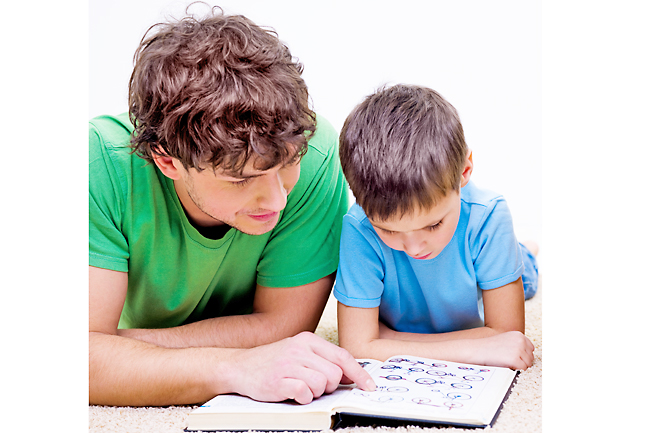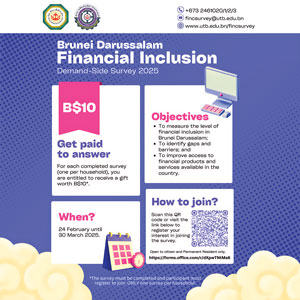Ulcca Joshi Hansen
THE WASHINGTON POST – My sons learned the concept of being smart when they were young. To them, “smart” meant to be good at the things most schools tell us are important: reading and writing well, understanding math, finishing tests quickly.
Both of my sons, now 15 and 13, measured themselves against this standard, and not surprisingly, found themselves to be lacking.
One is a reluctant reader who was flagged for years in school because he was “below grade level.” The other is a strong student but a bit scattered; he thinks about five things at once, often when he is expected to pay attention. He constantly heard that he was off-task.
During the pandemic, I had a front-row seat to how they each thrived beyond the limitations of traditional school.
My reluctant reader can hold variables in his head visually in a way that lets him beat everyone in the family at chess and strategy games. He used YouTube to explore topics like asteroid mining, his favourite city of Dubai, and whether sugar really makes kids hyper. His brother binge-watched Grey’s Anatomy and decided he wants to be a surgeon and used the Internet to teach himself to dissect an animal and master the basics of surgical suturing.
Like many parents, I struggle with a painful tension: I see the unique brilliance of my children, but I also know that brilliance can’t shine in an education system where “smart” is measured in a very different way.
Despite the fact that children learn in different ways, at different paces, we favour certain cognitive functions and place heavy emphasis on compliance, stillness and the ability to pay certain kinds of attention.
The educational disruption of the coronavirus pandemic was a reminder that “smart” has come to represent a flattened, largely dehumanised idea of human capability, and that our children are so much more.
I am a former elementary school teacher who worked in Newark. I eventually left the classroom to become an educational researcher and advocate because I wanted to change how we educate our children to reflect what we now know about human development, the science of learning and the many ways in which human potential emerges.
Over the years, I have counselled parents who struggle to support the child they have under the shadow of what our system expects. Here are some ideas for parents so they can reconsider how their kids are smart, and how to encourage children to learn and thrive, despite a system that is often measuring them differently.
EXPLORE HOW YOUR KID IS SMART INSTEAD OF WHETHER THEY ARE SMART
This one is hard, but parents need to step back and stop focussing on grades to discover how their children are smart instead of whether they are smart.
How?
Have a conversation with your child and reflect on the past year of remote learning.
What worked for them? What did they like? What felt hard? Discuss how they might use it to approach school differently.
One friend’s daughter discovered she worked better with a more flexible schedule, choosing when and how to complete assignments. She had figured out the best times she felt focussed and less distracted.
Another child discovered he completed work much more quickly at home, when he didn’t have distractions he has at school. He asked his teachers if he could wear noise-cancelling headphones.
And another realised he was much better at creating videos for school projects instead of writing the same ideas on paper. He is asking his teachers if he can have some opportunities to demonstrate his knowledge in ways other than essays.
Ask what they’re most curious about learning. If they aren’t sure what they find interesting, have them think about how they chose to spend the extra time that was not filled with their usual activities.
Once you identify a question or issue they show interest in exploring, help create projects they can pursue on their own.
Look online for people who work in that field – and reach out with specific questions or requests. People are busy, but many will make time to support a young person interested in learning.
TAKE STOCK OF WHAT YOU AND YOUR KIDS HAVE LEARNED DURING THE PANDEMIC
While it is true that there are things your child may not have learned as well because of distance learning, there are other important things they did learn because they were at home, in their communities, paying attention to different things.
They probably noticed new things about injustice in their country and communities; observed how the economy works (or doesn’t) when a global pandemic disrupts supply chains; took in something about the science of vaccines.


Conversations about these and other everyday happenings are learning opportunities. It is useful to remind ourselves and our children that learning happens everywhere, all the time, if we can view our experiences through that lens.
It is also important to talk about soft skills as learning, as they are important skills that will help our kids become successful adults.
“Critical thinking, communication, time management, executive functioning, metacognition – if a child has mastered these they will not only do better in their classes, they will take these tools into whatever context they go,” said owner of KOMO Kelsey Komorowski, a tutoring organisation. She believes we focus too much on how well kids are doing in individual subjects and on boosting grades.
Instead, she said, we should, focus on those “soft” skills that transfer across classes
and contexts.
These skills can be for kids of all ages: Even very young children have a desire to understand and plan their days, create and maintain order, and ask questions about
the world.
HELP YOUR CHILD’S FORMAL EDUCATION WORK BETTER FOR THEM
Schools are set up in ways that can work well for some and not so well for others. Many schools expect kids to work at a pace and in an order defined by adults, even though that may not work for your child’s development. Consider what you and your child have learned about how their school is and is not a good fit in how it approaches learning.
The pandemic may have provided insights into how to address common struggles at school, or how to advocate for different supports.
Many people remember schools as places that told us all the ways we didn’t measure up, rather than being a place where we focus on our strengths and build from those.
Director of Education at Denver Academy Philippe Ernewein, a programme designed for learners who have not thrived in conventional settings, told me: “We ask students: what do you take joy in doing or find easy to do? How do you prefer to learn? Then we build around those skills,” he said.
“If a student has a hard time reading, we teach them that there are different ways to ‘read’: with your eyes through words on a page; your fingers if you read Braille; your ears if you prefer books on tape; your eyes and ears if you prefer to watch videos.”
In a world where technology enables us to access, capture, engage with and distribute knowledge in so many ways, it feels most important to help kids learn what they need to succeed and help them build those skills.
It is perfectly normal for kids’ foundational reading skills to develop as late as age eight, and for them to grow into higher order literacy skills well into their middle school years.
It’s why systems like Finland’s – in which children generally outperform American students both academically and in terms of overall wellness – don’t begin formal reading instruction until ages six or seven, and often have more flexible learning progressions and multi-age classrooms.
If your child struggles with reading, remind them that what matters most is that they gain new information and ideas. Explore tools that can support them. For example, have them listen to audio while looking at text to make connections between sounds and written words, use video to introduce new material before moving onto to written materials, or introduce visual organisers, which are ways to gather and organise information graphically.
For the vast majority of children, reading eventually clicks. If there is a history in your family of diagnosed dyslexia or struggles with reading, it may be worth considering an evaluation, but understand that children’s naturally jagged development is normal.







